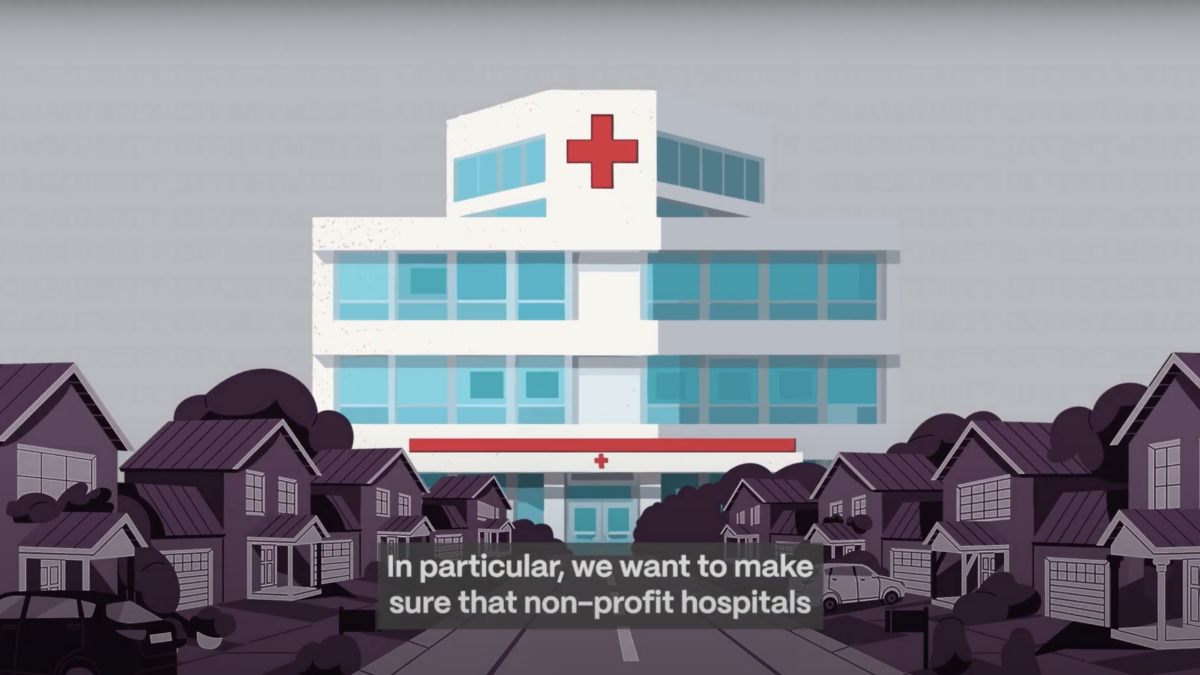Medical Bills: Everything You Need to Know About Your Rights
Authors
Patricia Kelmar, JD
Senior Director, Health Care Campaigns, U.S. PIRG Education Fund
Quynh Chi Nguyen
Associate Director, Center for Community Engagement in Health Innovation at Community Catalyst
Introduction
Your one-stop guide to understand and fight your medical bills
As the cost of health care has grown ever higher, you may find your personal budget strained.
Health care prices are at an all-time high and continue to grow. That means — even if you have health insurance — more medical bills become your financial responsibility. You may find yourself paying for a monthly health insurance premium in addition to an annual deductible, copays, and coinsurance for each visit to the doctor’s office or hospital. If you are one of the millions of people in the United States who do not have health insurance, you are forced to pay the full amount of every single doctor’s visit, blood draw, or E.R. trip — which is no small thing, considering the average price of a routine doctor’s visit is between $300 to $600 alone.
These costs can be devastating to your financial security. In fact, nearly four in ten people in the U.S. have medical debt. This includes nearly 11 million people who owe more than $2,000 and 3 million people who owe more than $10,000. Black adults (16 percent) report a disproportionate amount of medical debt compared to white adults (9 percent).
Medical debt can lead to home foreclosures, personal bankruptcies, and reduced credit scores. It also has health-related consequences, like causing people to delay a medically necessary treatment due to the cost.
That’s why it’s so important to learn how to handle your medical bills and use your rights to avoid unnecessary billing charges. In some cases, you may even need to fight an illegal medical bill.
This guide is meant to help you navigate medical bills and other common charges in health care settings — like when you need emergency care, are scheduling care at a hospital, or are faced with unaffordable medical bills. Simply select the subject that applies to you to learn more.
Know Your Rights
If English is not your primary language, you have the right to request and receive language assistance when receiving health care. You may ask for an interpreter and/or translation of all documents related to your medical services, including medical bills, financial assistance application, and consent forms.
If you believe your rights have been violated, or if you are unsure — contact a legal aid organization in your area.
In Partnership With
About the Authors
Patricia Kelmar, JD
Patricia is an attorney and advocate directing high value health care campaigns work for U.S. PIRG Education Fund and U.S. PIRG. PIRG is a federation of independent, state-based, citizen-funded Public Interest Research Groups in 25 states, whose role is to find common ground around solutions that will make our future healthier, safer and more secure.
Quỳnh Chi Nguyễn
Quỳnh Chi is an Associate Director for the Center for Community Engagement in Health Innovation at Community Catalyst. In this role, Quỳnh Chi oversees two major projects on community benefits and economic stability, and hospital equity and accountability. She also supports local and state health advocacy organizations that are working to improve economic stability. She has expertise in several policy areas, including affordability, health insurance coverage, prescription drug costs, and health justice.
Acknowledgements
We are grateful to the following individuals for their input and support:
Julia Char Gilbert
Connelly Policy Advocate
Colorado Center on Law and Policy
Nicolas Cordova
Attorney, Healthcare Director
New Mexico Center on Law and Poverty
Berneta L. Haynes
Senior Attorney
National Consumer Law Center
Sherrell Byrd
Founder and Executive Director
SOWEGA Rising
!function(f,b,e,v,n,t,s) {if(f.fbq)return;n=f.fbq=function(){n.callMethod? n.callMethod.apply(n,arguments):n.queue.push(arguments)}; if(!f._fbq)f._fbq=n;n.push=n;n.loaded=!0;n.version=’2.0′; n.queue=[];t=b.createElement(e);t.async=!0; t.src=v;s=b.getElementsByTagName(e)[0]; s.parentNode.insertBefore(t,s)}(window,document,’script’, ‘https://connect.facebook.net/en_US/fbevents.js’); fbq(‘init’, ‘869548508228138’); fbq(‘track’, ‘PageView’); _linkedin_partner_id = “6158244”; window._linkedin_data_partner_ids = window._linkedin_data_partner_ids || []; window._linkedin_data_partner_ids.push(_linkedin_partner_id); (function(l) { if (!l){window.lintrk = function(a,b){window.lintrk.q.push([a,b])}; window.lintrk.q=[]} var s = document.getElementsByTagName(“script”)[0]; var b = document.createElement(“script”); b.type = “text/javascript”;b.async = true; b.src = “https://snap.licdn.com/li.lms-analytics/insight.min.js”; s.parentNode.insertBefore(b, s);})(window.lintrk);




